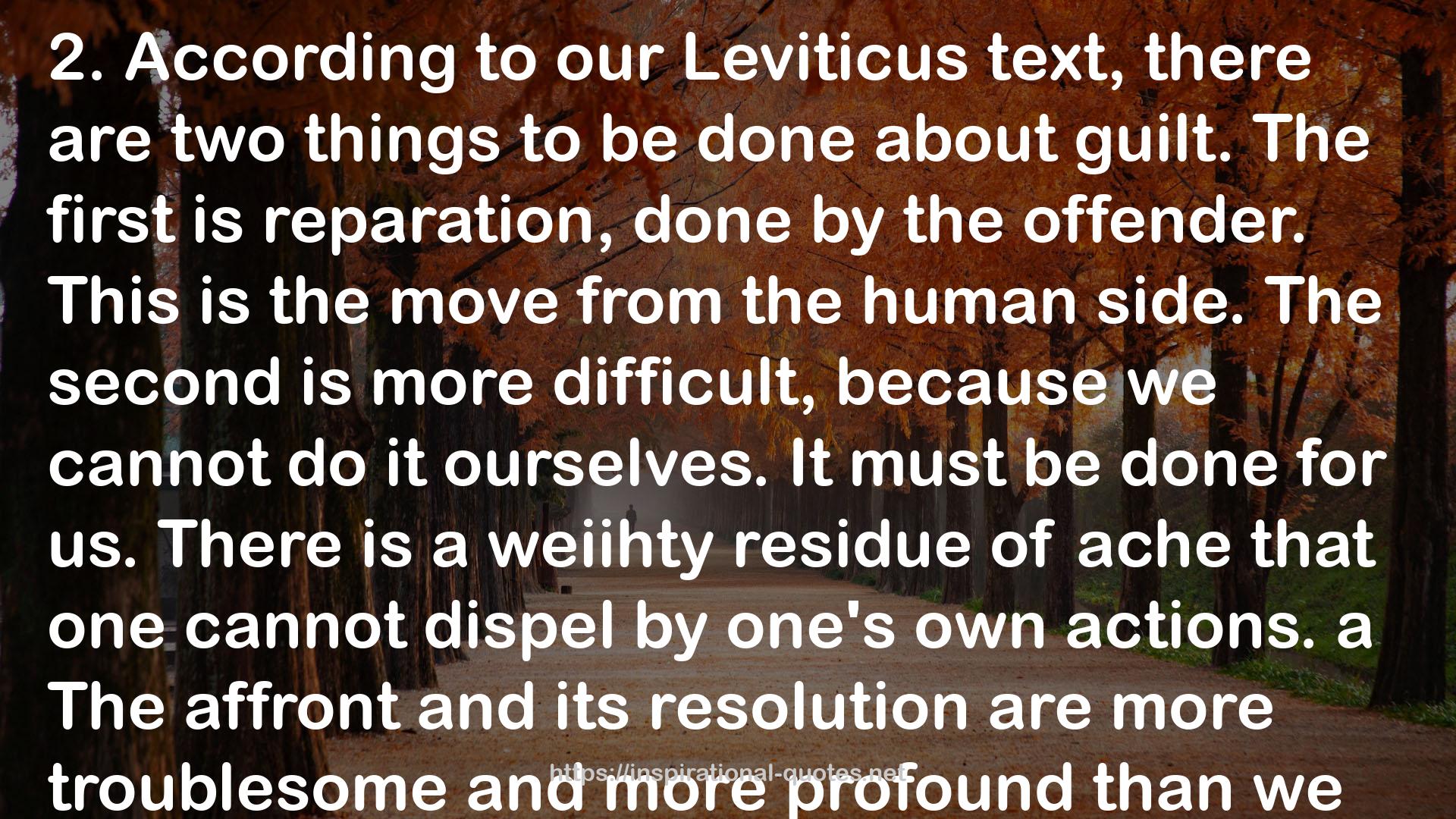" 2. According to our Leviticus text, there are two things to be done about guilt. The first is reparation, done by the offender. This is the move from the human side. The second is more difficult, because we cannot do it ourselves. It must be done for us. There is a weiihty residue of ache that one cannot dispel by one's own actions. a The affront and its resolution are more troublesome and more profound than we ourselves can settle. What remains unresolved is underneath guilt; it is more like taintedness, uncleanness. The priests noticed that even after adequate reparations are done, one is not yet finished. The problem of alienation lingers. The priests did not shrink from the recognition that this unfinished business requires them to act as priests. There is an authority they will have to exercise, costly as it is. Priests, even those who think of themselves primarily as preachers, are entrusted with this "residue of ache" that is dealt with only through mystery that reaches from the other side, out where we cannot act reasonably or effectively. Finally, guilt requires God's action. That action of God, in order to be reliably available, must be given by the regularized channels of priestly action. The work of priests is to make available the God who is required for reconciliation. "
― Walter Brueggemann , Finally Comes the Poet
